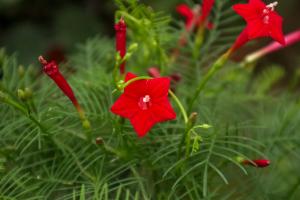Introduction
Tap water is the most commonly used source of water for indoor and outdoor plants. However, tap water is treated with a range of chemicals that can prove detrimental to plant growth. In this article, we will discuss the best practices for treating tap water for plants to ensure they grow and thrive.
Identifying the Tap Water Source
The first step in treating tap water for plants is to identify the source of the tap water. This is important because different sources of tap water may contain varying levels of chemicals such as chlorine, fluoride, salts, and heavy metals. Knowing the source of your tap water will help you determine the appropriate treatment measure required for the best results.
Boiling Tap Water
One common way to treat tap water for plants is to boil it. Boiling the tap water will help to remove chlorine, which is commonly added to kill bacteria in the water. However, boiling tap water will not remove other chemicals such as fluoride and heavy metals. Boiled tap water should also be cooled to room temperature before using it to water plants.
Using Water Filtration Systems
Another way to treat tap water for plants is to use water filtration systems. A variety of water filtration systems are available on the market, including reverse osmosis, activated carbon filters, and water softeners. These systems can help to remove chemicals such as chlorine, fluoride, and heavy metals, providing clean and safe water for your plants.
Leaving Water to Stand Overnight
Another simple method to treat tap water for plants is to let it sit for a minimum of 12 hours. This will allow the chlorine to evaporate from the water, making it safe for plants. However, this method will not remove other chemicals such as salts and heavy metals. Therefore, it is best to use this method in conjunction with other treatment measures.
Using Rainwater
Rainwater is an excellent alternative to tap water for plants, as it is free from chemicals and provides natural minerals that are beneficial for plant growth. Collecting rainwater can be done using a rain barrel or a similar container. However, it is important to note that collected rainwater should be filtered before using it to water plants, as it may contain dirt, debris, and pollutants.
Conclusion
Treating tap water for plants is crucial to ensure successful plant growth. Boiling tap water, using water filtration systems, letting tap water stand overnight, and using rainwater are all effective methods of treating tap water for plants. Choosing the right method will depend on the type of plants, the source of water, and the specific chemical contaminants present in the tap water. By following these treatment measures, you can rest assured that your plants will receive the best possible water for their growth and vitality.

 how many times do yo...
how many times do yo... how many planted tre...
how many planted tre... how many pine trees ...
how many pine trees ... how many pecan trees...
how many pecan trees... how many plants comp...
how many plants comp... how many plants can ...
how many plants can ... how many plants and ...
how many plants and ... how many pepper plan...
how many pepper plan...































